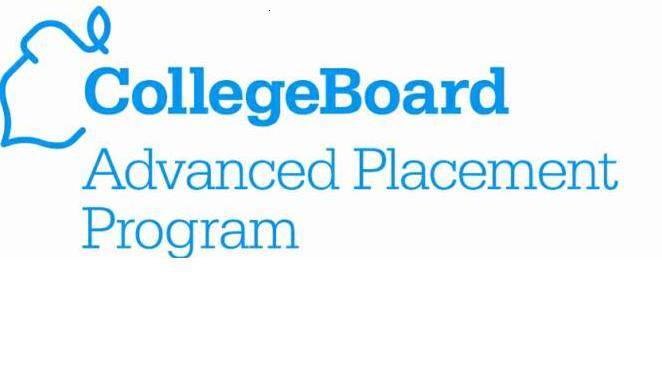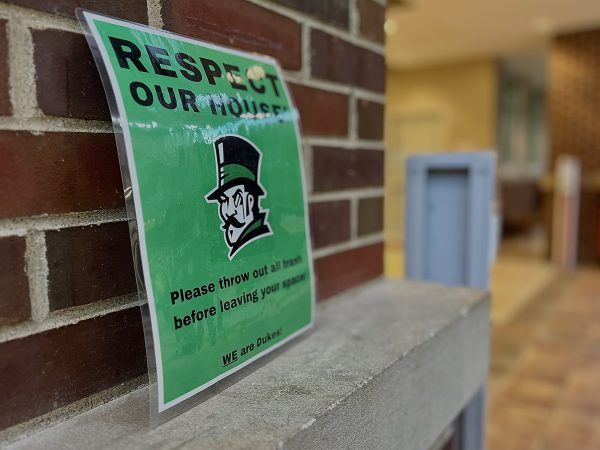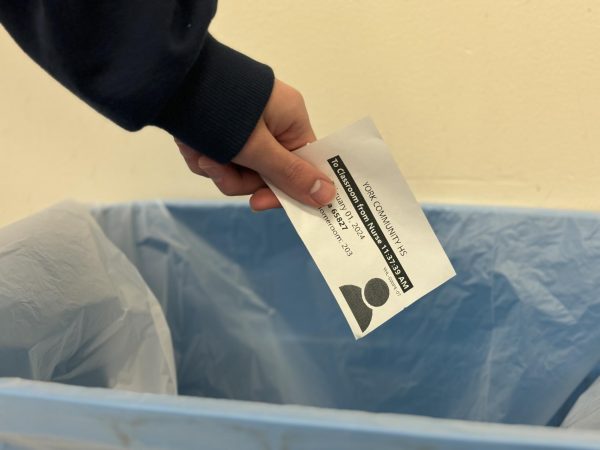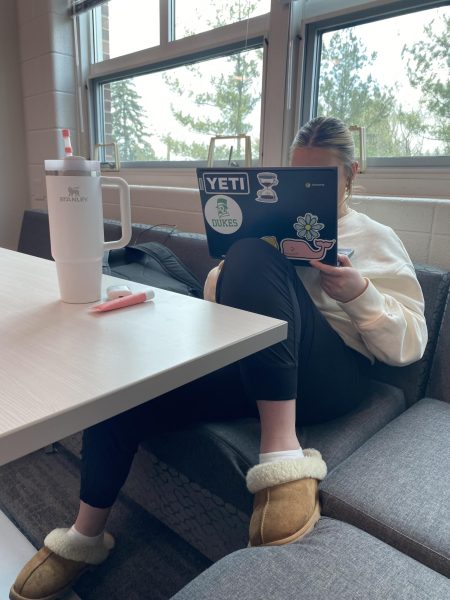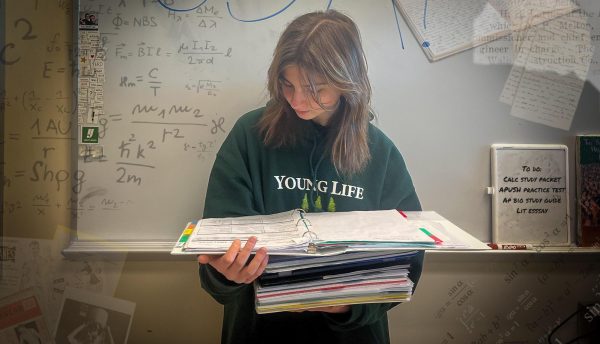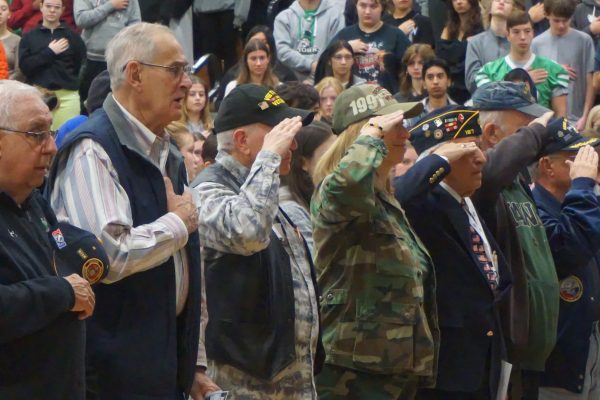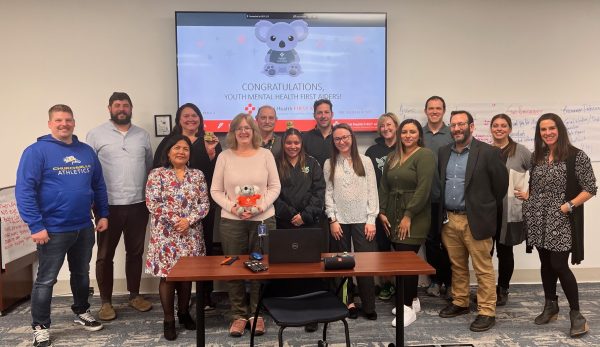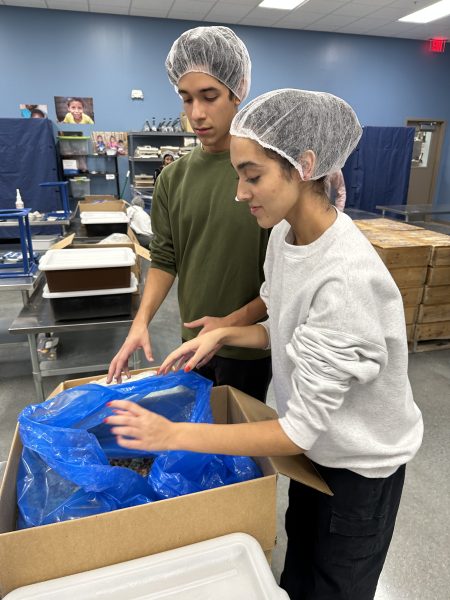AP Spanish classes add service element to classes
This year, York AP Spanish classes were selected to complete the Service Learning Project, a program created by College Board.
This is the first year College Board has decided to include service learning in six of its offered courses, including AP Spanish. Along with the typical course, students in this class will complete a service project that has to do with the AP theme of Poverty and Its Effect on Education, tying together their advancement in the language and making a difference in our community.
“This is all about connecting one’s learning to real world issues, and the people that are affected by them–that’s where the real learning occurs,” said Mrs. Leidolf, Spanish teacher.
This new opportunity offered to the classes at York allows students to step beyond just learning how to converse and how to write in another language.
“I feel like overall including the service as part of our curriculum will enhance our education,” says Carla Abreu, senior. “I think I’ll benefit from it, and it’s also just fun to do.”
Although the project is not a class requirement, it is highly encouraged by the students of York’s AP Spanish classes.
“For me, the world is a big beautiful classroom that has so much to teach us,” said Leidolf. “What better way to learn more about who you are and what you are studying than to take everything and apply it outside of those classrooms and make a difference for others?”
Students are given the independence to choose and plan their act of service during this enriching experience.
“My group wants to sell stuff from Chipotle during lunch, and give some of the money to YSET. The other money will go to a bigger organization,” said Abreu.
With this exciting addition to the curriculum, students and teachers can look ahead to the benefits of this course even after the completion of the class.
“I hope that the service learning piece of this course strengthens my students’ understanding of the theme we explored,” said Mrs. Leidolf. “Even more importantly, I hope it inspires them to become compassionate leaders and more active members of their local and global communities to make a difference for others in our world.”

Ellie Cockrell is a senior, and this will be her first year on staff. She is very excited to be involved with reporting and recording all the things going...


